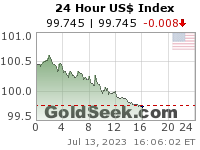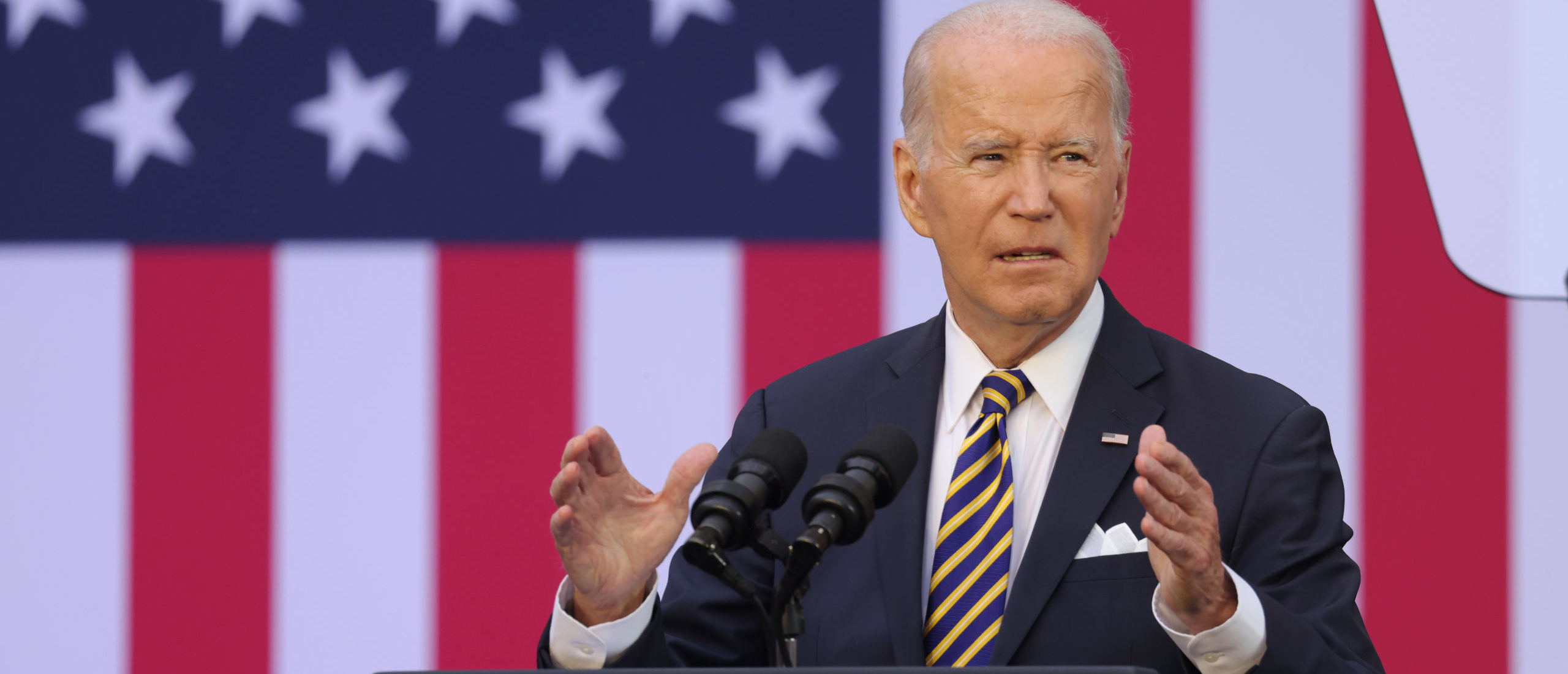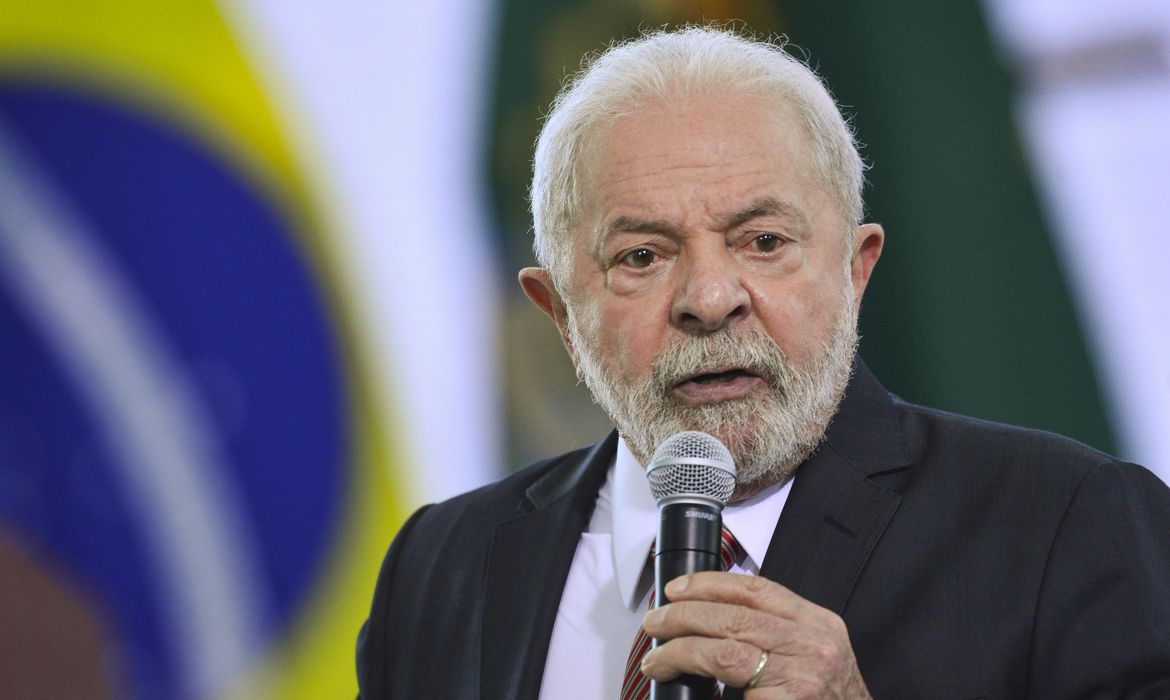'Catastrophic': Biden's Policies Put US Dollar's Global Dominance At Risk, Economists Say
Jason Cohen
- The policies of President Joe Biden’s administration are undermining the strength of the U.S. dollar and jeopardizing America’s worldwide influence, economists told the Daily Caller News Foundation.
- Economists expressed concern regarding the possible consequences of Biden’s policies, highlighting the threat to the U.S. dollar’s global reserve currency status.
- “Losing reserve currency status … would mean 70 years of deficits flooding back to the U.S., all competing with existing dollars held domestically to buy goods and services,” Heritage Foundation economist E.J. Antoni told the DCNF. “That’s a hyperinflation scenario. It also means we could no longer export inflation abroad, so we’d bear the full cost of future inflation ourselves.”
President Joe Biden’s administration’s policies are weakening the standing of the U.S. dollar and threatening America’s global influence, according to economists who spoke to the Daily Caller News Foundation.
Economists told the DCNF about the potential repercussions of Biden’s policies, expressing serious concerns that the U.S. dollar’s global reserve currency status is at risk. The result could be hyperinflation, spending cuts and other severe consequences for the country; economists concurred that the actions taken by the Biden administration and the Federal Reserve have contributed to the depreciation of the U.S. dollar, but there was a divergence of opinion regarding the extent of the risk.
“The Biden administration has taken so many actions to dethrone King Dollar that it would be difficult to rank them all by their destructiveness,” Heritage Foundation economist E.J. Antoni told the DCNF.
As the reserve currency, the U.S. dollar is involved in the majority of business on the planet. International trade typically takes place in dollars.
“Losing reserve currency status … would mean 70 years of deficits flooding back to the U.S., all competing with existing dollars held domestically to buy goods and services,” Antoni told the DCNF. “That’s a hyperinflation scenario. It also means we could no longer export inflation abroad, so we’d bear the full cost of future inflation ourselves.”
Economists particularly criticized the Biden administration’s sanctions against Russia as a punishment for invading Ukraine. The U.S. seized Russian central bank assets and participated in
banning Russian
banks from the Society for Worldwide Interbank Financial Telecommunication (SWIFT), the global financial messaging system, in February 2022.
The U.S. and its allies have taken over $300 billion worth of foreign currency assets held by the Russian central bank, which had been frozen due to sanctions,
according to Reuters. A substantial portion of the seized assets are now located at the Federal Reserve Bank of New York, although they are still owned by Russia.
Confiscating Russia’s central bank dollar reserves was “the single biggest Biden mistake,” Peter St. Onge, an economist at the Heritage Foundation, told the DCNF. “It put dozens of countries on notice that if the U.S. doesn’t like your policy, we’ll crash your economy and seize your dollars. In other words, dollars now carry a unique risk.”
Further, removing Russian banks from SWIFT “signaled to countries not politically aligned with the United States that we are willing to use the dollar as a political weapon, which made them reluctant to hold U.S. dollars,” Dr. Thomas Hogan, senior research faculty at the American Institute for Economic Research (AIER), told the DCNF.
Treasury Secretary Janet Yellen lauded the sanctions, stating they will be effective in preventing Russia from destroying Europe without hurting the U.S. “Our actions, taken in coordination with partners and allies, will degrade Russia’s ability to project power and threaten the peace and stability of Europe,” Yellen
said at the time. “We are united in our efforts to hold Russia accountable for its further invasion of Ukraine while mitigating impacts to Americans and our partners.”
These sanctions against Russia have led countries to devise alternatives to the U.S. dollar, AIER economist Peter Earle told the DCNF.
China, Russia, Saudi Arabia, the United Arab Emirates and Brazil began trading in the
Chinese Yuan and the Russian ruble instead of the U.S. dollar in 2023, according to NPR.
“No country wants to suddenly be unable to engage in international trade if they have a dispute or fall into disfavor with Washington D.C.,” Earle explained.
Additionally, Russian state-backed media has
reported that Brazil, Russia, India, China and South Africa (BRICS) will soon announce a gold-backed currency.
“A gold-backed currency represents a real threat to all fiat monies, including the dollar,” Antoni told the DCNF.
(RELATED: EJ ANTONI: The Decline And Fall Of The US Dollar)
“The real source of our power is the dollar,” Peter Schiff, the chief economist and global strategist of Euro Pacific Capital, told the DCNF. “If the dollar wasn’t the reserve currency, government spending would have to be slashed.”
Inflation is another reason the dollar’s value is weaker, with economists blaming
Biden and the
Federal Reserve’s policy. The Consumer Price Index (CPI), a broad measure of prices of everyday goods such as energy and food,
increased 3.0% on an annual basis in June,
according to the Bureau of Labor Statistics.
“The Biden administration’s spending, borrowing, and printing of trillions of dollars gave us 40-year-high inflation,” Antoni told the DCNF. “Such devaluation of the dollar has shaken foreigners’ confidence in the currency’s stability over time.”
However, Hogan told the DCNF that “the strength of the U.S. dollar is really determined by monetary policy of the U.S. Federal Reserve … the Fed creates inflation.”
“I don’t think inflation is Biden’s fault,” Hogan added. “In terms of inflation, I blame it entirely on Fed officials, not on the Biden administration.”
Hogan also was more optimistic, stating, “Luckily for us, it’s still less bad than in many other countries, which has kept the international value of the dollar relatively stable. Although dollar dominance has declined in recent years, the magnitude is small. There is no other serious contender for widespread use in international exchange.”
“Even though I would like the United States to have a more stable currency (less inflation), a stronger economy (less regulation), and a more reliable government, we are still better on those margins than pretty much every other country in the world,” Hogan added. “Unless China or Russia suddenly gets free markets, strong property rights, and a stable currency, they do not present a serious threat to U.S. dollar dominance.”
Earle was also optimistic about the dollar’s future as the reserve currency. “Ejecting the dollar from the top spot as the global reserve currency is highly unlikely and would take decades,” he told the DCNF.
Antoni disagreed. “It’s difficult to overstate just how calamitous this would be and how quickly it could happen,” he said.
All content created by the Daily Caller News Foundation, an independent and nonpartisan newswire service, is available without charge to any legitimate news publisher that can provide a large audience. All republished articles must include our logo, our reporter’s byline and their DCNF affiliation. For any questions about our guidelines or partnering with us, please contact
licensing@dailycallernewsfoundation.org.
Joe Biden's administration's policies are weakening the standing of the U.S. dollar and threatening America's global influence, according to economists.

dailycaller.com










 Barron's
Barron's
